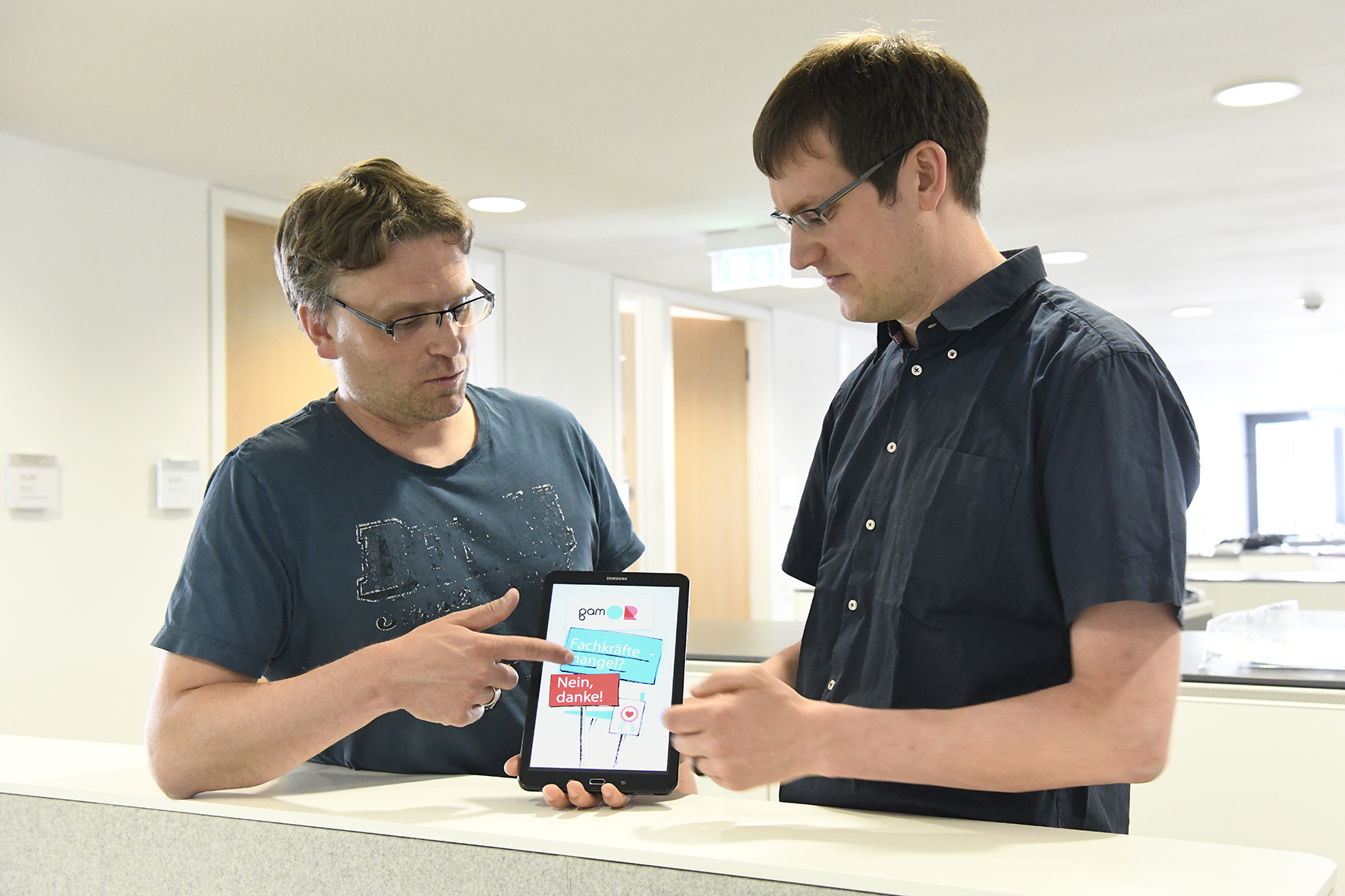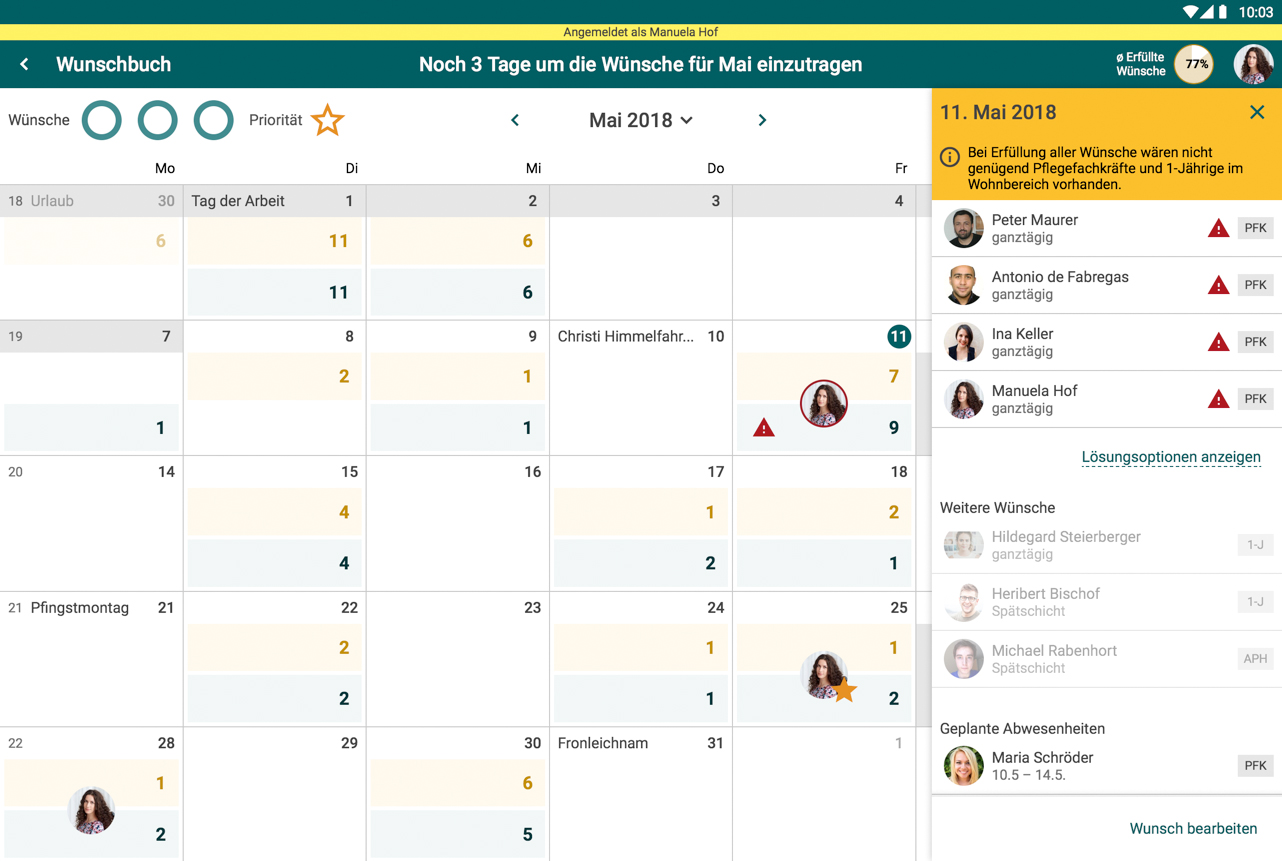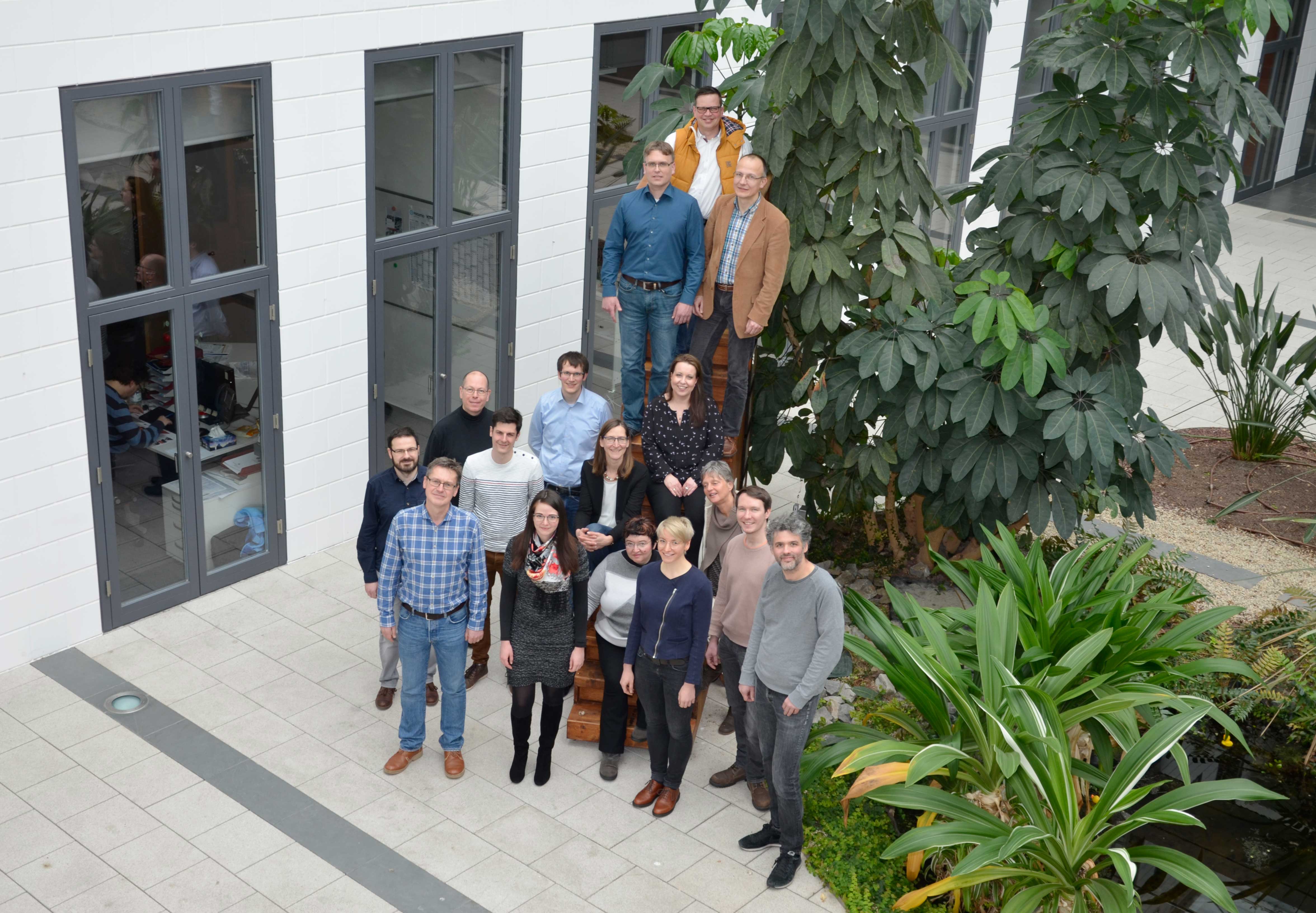2.9 million people were in need of care in 2015; by 2050 this figure is expected to rise to more than 4 million (source: Federal Statistical Office of Germany). However, the increasing demand for nursing staff is facing difficult working conditions. High physical and psychological stress as well as impairments of social life due to shift work characterise everyday working life.
At the same time, studies have shown that the involvement of employees in the design of their duty rosters and greater planning certainty with regard to their leisure activities result in a significantly better assessment of the work situation.
Improvement of the Work Situation through Team-Oriented Self-Organisation
The main goal of the project GamOR (GameOfRoster) is to improve the disadvantageous conditions of shift work. In the nursing professions, employees often suffer from restrictions in their social life. The duty planning process is therefore designed collaboratively through digital participation and enables team-oriented self-organization.
To achieve this goal, we pursue these goals:
- development of the collaborative rostering process
- the integration into the professional everyday life
- the development and testing of a digital assistance platform
- Ensuring sustainable motivation through experience-oriented design




